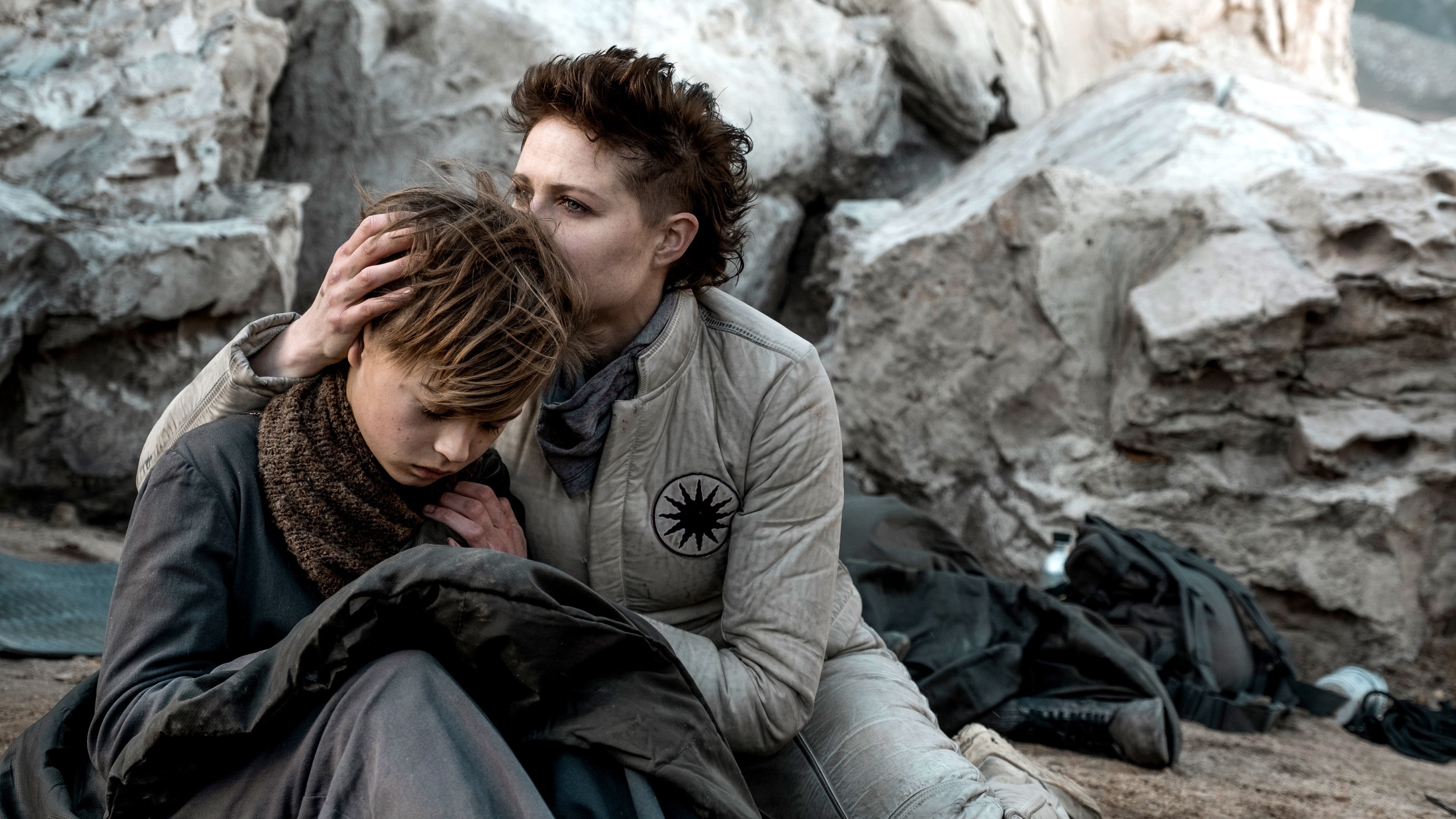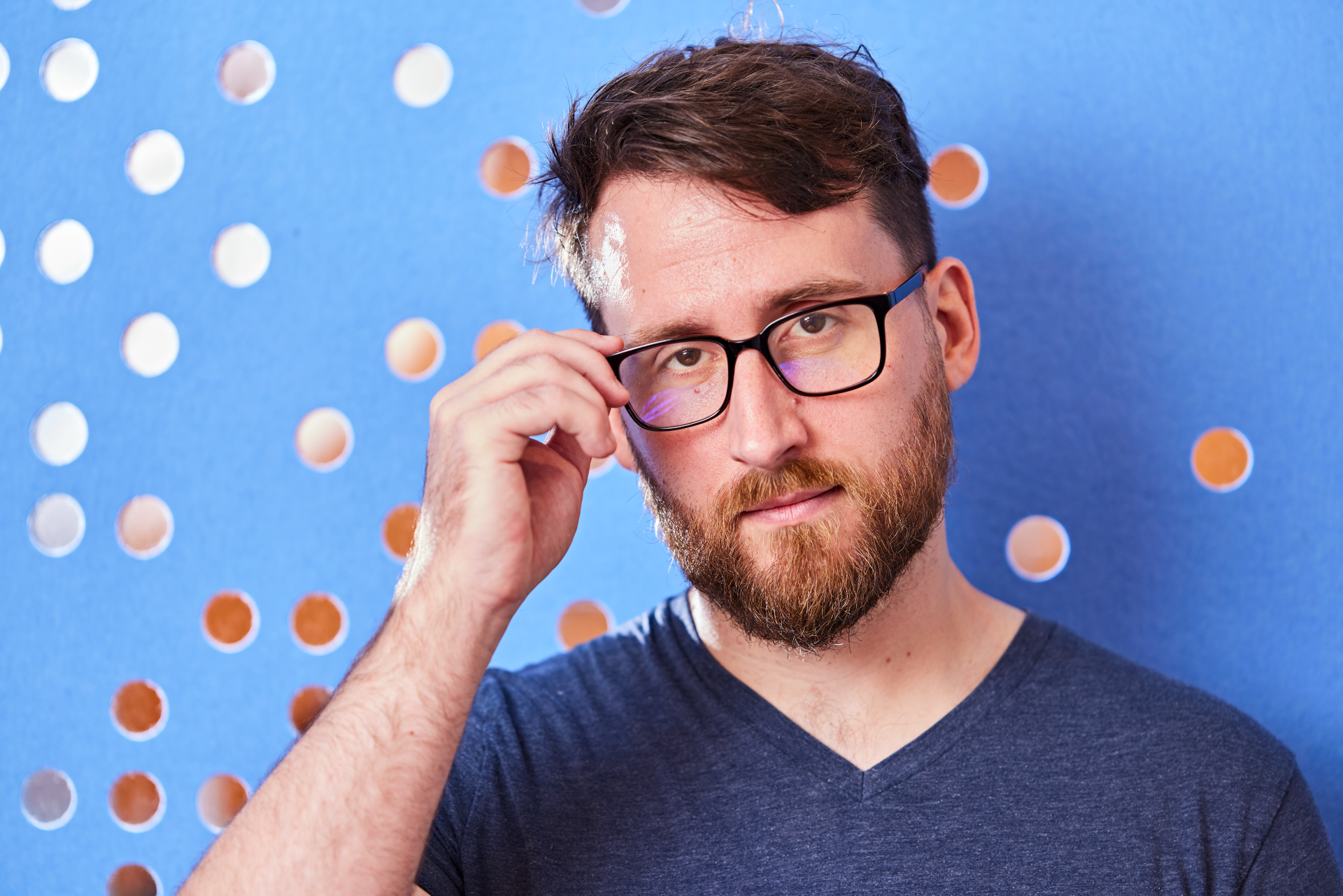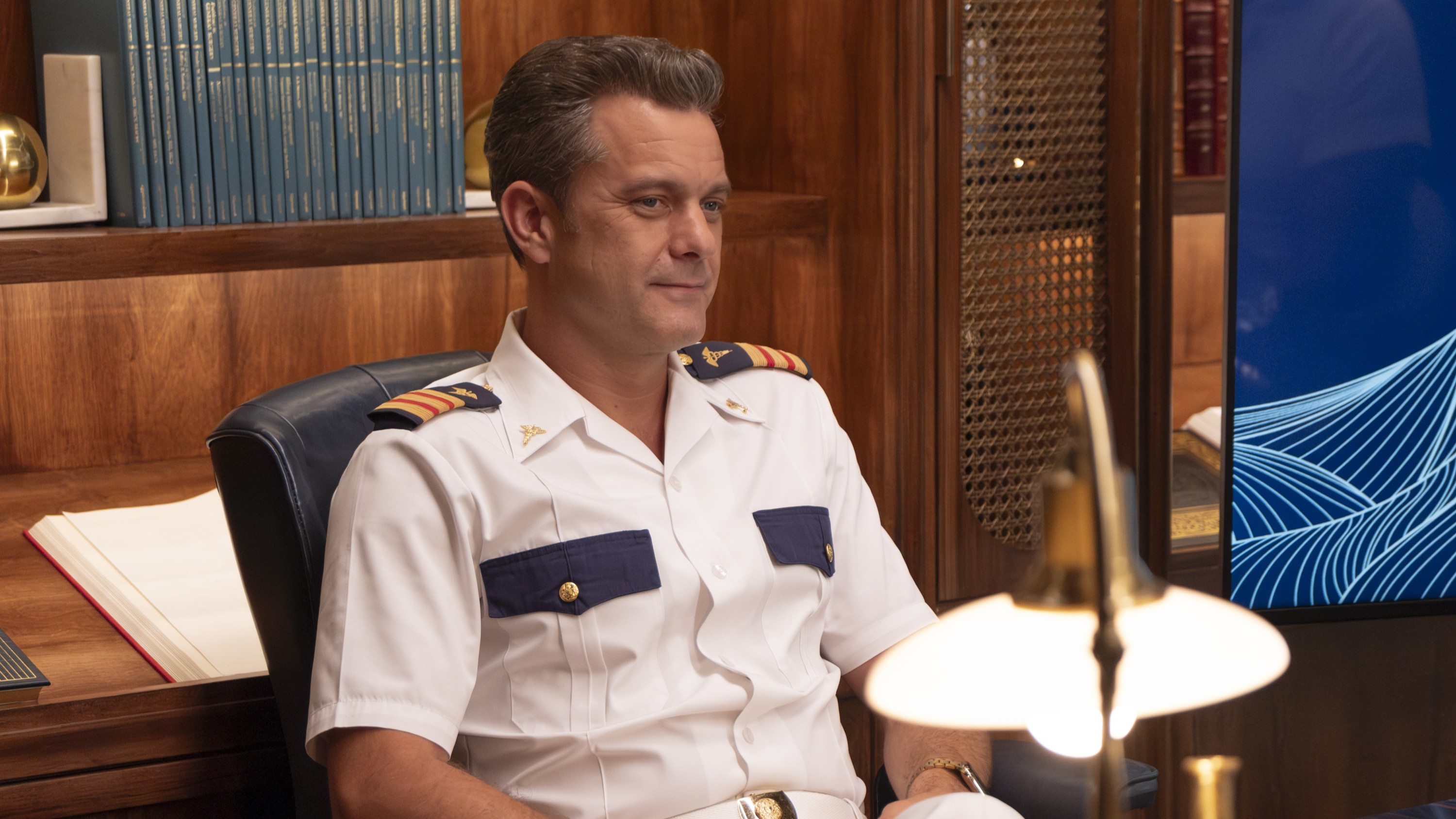What to Watch Verdict
In an era where television seasons often feel like one long movie, 'Raised by Wolves' may land with a thud for some, but the cosmic horror never lets up.
Pros
- +
🤖 Oh good now I'm afraid of space worms.
- +
🤖 Father's broken heart is, well, heartbreaking.
- +
🤖 More Luke Scott means more weather shots!
- +
🤖 I would die for Sue. Seriously.
Cons
- -
🤖 Feels a little rushed, even as it answers nothing.
This post contains spoilers for Raised by Wolves.
Check out our review of the previous two episodes here.
The end is upon us. In the tenth and final episode of its inaugural season, Raised By Wolves gives itself over to the madness, throwing prophecy and abominations alike at the screen and leaving no shortage of storylines unresolved for its (now-confirmed) second season. For those who have been along for the ride since day one, “The Beginning” is the cosmic space horror ending that we wanted all along. It would seem Aaron Guzikowski is unafraid of leaving loose ends.
As far as episode titles, “The Beginning” is aptly named. Rather than concluding several key storylines, the season finale pushes its characters towards new revelations. Mother (Amanda Collin) finally gives birth to her child, revealing that the “miracle” inside her is an abomination – a faceless serpent who glides through the sky and has a seemingly endless hunger for the lifeblood of others.
Meanwhile, the worst fears of Sue (Niamh Algar) are realized. Sol has spoken to Paul (Felix Jamieson) and whispered the truth of her dark origins, causing the boy to turn against the woman that has grown to love him more than life itself. This rattles the survivors, who face a second season with no protection but their own.
As these events play out, we are also treated to the increasing madness of Marcus (Travis Fimmel), who now wanders the desert in search of a vision. Marcus and Mother have long been two sides of the same coin: when the season began, both were killers masquerading as parents, but now the two have given themselves over to their respective higher powers.
Marcus’ big reveal is that the atheists have arrived in a ship of their own, meaning that he is now trapped behind both a faith and a face that makes him the enemy of his own people.
But “The Beginning” is not without a few important answers. As some might have already suspected, we learn that the creatures Father and the children hunt are devolved versions of humans, hinting at a previous colonizing mission (or missions) that brought life to the planet of Kepler-22b.
Only the Mithraic can say how this reveal might play into their ancient prophecy – and where these humans, whose equipment bears a suspicious resemblance to the Engineers of Alien lore – might fit into the future of humanity, but this seems to be a question reserved for a future season.
If a giant, flying serpent seems like a bridge too far for the series, crack open your nearest copy of the scripture. In the Old Testament, the Israelites were set upon by flying serpents in the wilderness after expressing doubt in their god’s ability to provide. While those mentions may be understood as a form of historical embellishment, Raised by Wolves has always anchored itself in a decidedly Old Testament reading of religion.
This is a series where visions, prophecies, and violence are visited upon the colonists in equal measure. What better way to raise the stakes than by finding inspiration in some of the more exotic elements of Judaism and Christianity?
For as much time as Raised by Wolves has spent on Mother’s gradual evolution into a being capable of great empathy and great horror, Father (Abubakar Salim) has also developed his own capacity for being more. When Father finally admits that Mother’s pregnancy is causing him a great deal of emotional distress, he opts for the factory reset.
“I will retain my behavioral model,” Father explains, “but I feel confident I won’t, as you say, mimic human love for you a second time, as I don’t believe this version of you will inspire the same feelings the version I met twelve years ago did.” For someone new to the emotion of anger, Father seems to have already perfected delivering the most hurt in the fewest possible words.
Of course, he cannot follow through on this promise, as Mother and Father are soon sent on a suicide mission to the center of the planet. When Mother recognizes that the newborn creature will soon hunger for human blood, the two opt to sacrifice themselves. Piloting the shuttle through the labyrinth of underground tunnels, Father and Mother finally discover the glowing ball of magma at the heart of Kepler-22b.
They say their goodbyes and plunge into the lava, their tiny craft looking for all the world like a sperm seeking out an egg – until the final moments of the episode, where the shuttle emerges unscathed on the other side. Sol, it seems, has other plans.
Will this be a satisfying resolution for fans of the series? From its opening moments, Raised by Wolves promised to be a show more interested in big ideas than big reveals. As the season evolved and religion and body horror became grotesquely intertwined, the series became about performance more than anything else.
We often talk about contemporary television shows as season-long movies, but there is a true joy to be found in a show that feels more like a series of high-concept short films. Each episode may have moved the series forward, but the narrative would never be the show’s strongest point.
In the end, we end up right back where we started. The pilot suggested a universe much in-line with the vision of Ridley Scott, and Raised by Wolves – often for better, rarely for worse – echoes that same unhinged grandeur. This is a show that takes Prometheus and gives it time to breathe, to evolve, and to let its comic-tragedy love stories play out on a galactic scale. If the show never becomes more coherent than this, it will be a journey worth taking again, and again, and again.
You can stream Raised by Wolves on HBO Max.
Matthew Monagle is an Austin-based film and culture critic. His work has appeared in a true hodgepodge of regional and national film publications. He is also the editor and co-founder of Certified Forgotten, an independent horror publication.












